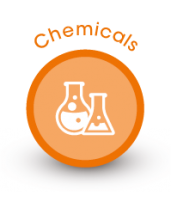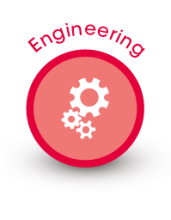
CoPro: Estimation of grey-box models with constraints
The Problem
- Process models are the cornerstone for the successful deployment of advanced control and real-time optimisation routines.
- Models often need to be customised with plant data to fit the actual processes, but fully replacing process knowledge by so-called deep learning is not a good idea.
- Data-driven models often match plants just at the current or past operation but predict unphysical responses far from these.
The Solution
- UVa developed a systematic methodology for grey-box modelling that allows the engineer to transfer the available process knowledge into a model.
- The methodology builds upon nonlinear data reconciliation, driven by basic first-principles equations, and constrained regression to seek for additional experimental equations among process variables.
- In this novel machine-learning framework, several desirable physical features can be enforced on the data-driven models.

The goal of the CoPro project was to develop and to demonstrate methods and tools for process monitoring and optimal dynamic planning, scheduling and control of plants, industrial sites and clusters under dynamic market conditions, to provide decision support to operators and managers and to progress to automated closed-loop solutions to achieve an optimally energy and resource efficient production.
CoPro brought together 17 partners from 8 EU countries, including 5 industrial end users and 6 technology providing SMEs. The project developed solutions for the plant-wide optimisation of large plants, for balancing production and consumption in industrial parks for industrial symbiosis, and addressed power plant scheduling and demand-side response. It further developed online data analytics for anomaly detection, and decision support for plant operators and managers. The solutions can be integrated into the IT infrastructure of the plants via an integration platform that supports the connection to different IT systems. CoPro developed model libraries for the efficient development of advanced optimisation-based solutions and techniques and software for hybrid modelling and model management.
The developments of CoPro were motivated by and applied to challenging use cases from different sectors of the process industries:
- (Petro-)chemical production;
- Cellulose fiber production;
- Production, formulation and packaging of consumer goods;
- Sterilisation and packaging of food.
CoPro demonstrated that significant savings of energy and resources are possible by using advanced technologies for monitoring, decision support, optimisation, and planning and scheduling.












